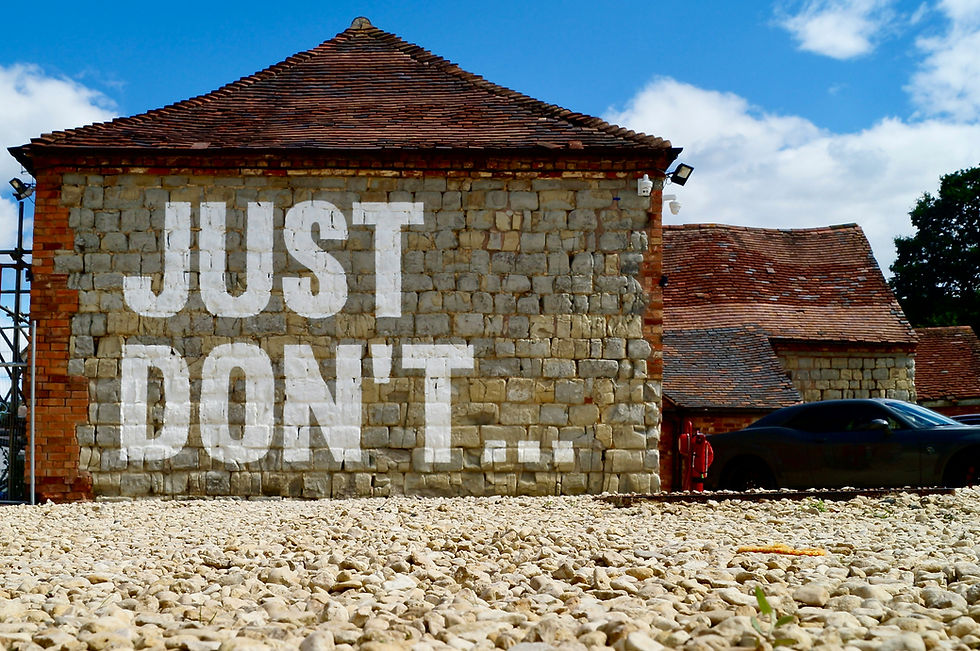White Guilt—On Marrying a Black Man
- Jessica Kiragu
- Mar 12, 2021
- 4 min read
Updated: Dec 10, 2025

I’ve written before about being frozen by big feelings in the face of overt racism (see post N**** r Lover). The kind of moments where shame, sadness, or fear rise up so fast that my voice seems to disappear. Those moments still sit with me.
They remind me the distance between who I’ve been and who I’m trying to be. I imagine myself naming racism clearly, thoroughly disrupting it, refusing the pull of whiteness that taught me silence. But I have plenty of stories where that didn’t happen.
The same tension shows up when someone questions my marriage. When they ask why I married a black man — as if love needs a racial explanation. Or when they ask what I’m going to “do” with my kids. It’s a strange kind of intimacy they assume — one that makes me feel exposed, and not in a good way.
Thankfully, no one has ever asked these things in front of my partner or my kids. I don’t want to think too long about what that would feel like for them — what it might imply about their place, their worth, or the legitimacy of our family.
Because those questions aren’t neutral. They’re not “simple curiosities.” They carry the weight of a culture shaped by whiteness.
When someone asks why I didn’t choose a white spouse, the question itself tells a story — that whiteness is still the baseline, the norm, the expectation. That what whiteness was created to do — separate and define people by skin color — is still the expectation. That loving someone who isn’t white is something to explain.
I don’t know the precise intent behind these moments — I can’t confirm what anyone is trying to signal or what they’re thinking. But the impact is unmistakable. It feels like I’m being reminded that I’ve stepped outside of what whiteness expects, or that I’ve wandered into territory whiteness doesn’t approve of.
And I feel the impact right away. My first instinct is defensiveness — a familiar reflex whiteness trained into me. But underneath that is guilt, Not guilt about the choices I’ve made in creating a family. But guilt because the question exposes that parts of whiteness are still tangled inside me. The parts I don’t always want to see.
These questions don’t just affect me—they carry weight for my partner and kids too. They remind them, in subtle but real ways, that our family doesn’t fit the “normal” whiteness defines. My marriage gets labeled “interracial,” my children “biracial,” our neighborhood “black,” our school “majority minority.” Meanwhile, whiteness stays unnamed and untouched, framed as the default while everything else is marked as “other.”
Those labels aren’t harmless—they send a message that love and family like ours aren’t fully accepted. That we exist outside the boundaries whiteness insists on. And each time I hear these questions, I’m reminded that I’m directly connected to the system that harms my loved ones—whiteness itself.
These moments bring me back to how deeply whiteness shaped what I learned about “normal.” It never needed naming because it was always assumed. I’ve absorbed so much of that, and if I’m not careful, whiteness will keep pulling me back in. Untangling it is daily work—small steps, big lessons, and constant unlearning.
It’s hard to face how I’ve embodied racial harm — and even harder to hear it named by others. But clinging to the old stories whiteness taught me only keeps me stuck. Those stories deny the reality of racism, how it shapes us, and who we could become if we let them go.
As a white woman who loves black and brown people, I can’t claim exemption. I have to confront what it means to be white and female in the U.S.—how white femininity has harmed black and brown men, women, and girls while protecting white women. This history is documented and still impacts lives today.
I also have to remember whiteness isn’t mine alone to dismantle. It’s cultural and structural, woven into what some of us call “normal.” It decides which families get uplifted and which face scrutiny, who’s seen as threat or innocence.
My marriage and parenting matter, but they won’t undo whiteness alone. Racism is old and complex, and some days I don’t know where to start. But retreating into defensiveness or guilt only feeds the very system I want to resist.
When I make race about my feelings instead of the harm whiteness causes or how whiteness gets in the way of equity, I reinforce the same old story: that racial conversations revolve around white experience. I’m done living that story.
The story whiteness gave me was narrow, incomplete, and self-serving. But other stories exist—rooted in truth, courage, and shared possibility. Stories where people name themselves and on their terms.
Lately, I’m unraveling that old narrative, naming what I must release, and listening to voices whiteness tries to silence. I’m trying to stay accountable, to grow, to contribute to a more equitable and free world, and to not let guilt or defensiveness get in the way.




Comments